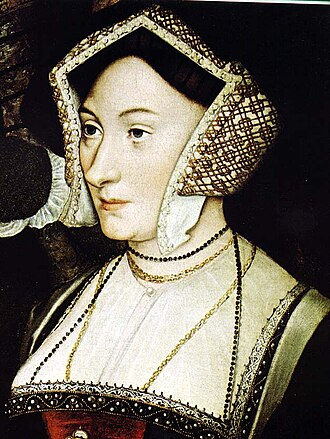Roper Last Name Origin, History, and Meaning
Where did the surname Roper come from? What does the surname Roper mean? Discover the history and meaning of the last name Roper and family migration on YourRoots Map.
Surname Roper Origin: What does the last name Roper mean?
The surname Roper is of English origin and dates back to the early 13th century, according to YourRoots data. It has remained closely associated with the United Kingdom through the 16th century. By the 17th century, the frequency of the Roper surname began to rise in the United States, indicating a significant spread beyond the UK during this period. Today, the surname remains prominent in the United States and is found in various regions worldwide, including the UK, demonstrating a global presence of the Roper surname.
YourRoots data confirms the presence of the Roper surname in the United Kingdom since the early 13th century. The name has expanded over the centuries, with records showing its prevalence in the United States and other countries by the 17th century. The Roper surname continues to be found in different regions worldwide, reflecting a diverse and widespread heritage that has evolved over time.
Roper Last Name History: Where did the last name Roper come from?
Origin of Roper Surname: Where does the last name Roper originate from?
According to YourRoots data, the Roper surname first appeared in records from the United Kingdom around the early 13th century. It's important to note that this reflects only YourRoots data for the exact “Roper” spelling and does not include other record sources or surname variations.
History of the Last Name Roper: What does the Roper surname history look like in the early days?
The “Roper” surname remained closely associated with the United Kingdom from the 13th through the 16th century. However, by the 17th century, the frequency of the Roper surname began to rise in the United States, according to YourRoots data. This indicates a significant spread of the Roper surname beyond the United Kingdom during this period.
Global Spread: Where can we find the Roper surname today?
By the 18th century, the frequency of records with the Roper surname had grown significantly in the United States, surpassing that in the United Kingdom. This trend continued into the 19th and 20th centuries. The “Roper” surname remains prominent in the United States and is also found in other regions worldwide. It appears in countries such as the United Kingdom and the United States, indicating a global presence of the Roper surname.
Explore Roper last name heritage and Roper surname origin based on YourRoots Map data
 VIEW THE ORIGIN OF SURNAME ROPER
VIEW THE ORIGIN OF SURNAME ROPERFamous People With Roper Surame?

Margaret Roper
Margaret More Roper (née More; 1505–1544) was an English writer and translator known for her intellectual prowess in sixteenth-century England. The eldest daughter of Sir Thomas More, she translated works from Latin to English and authored original treatises. Roper married William Roper and had five children, including Mary, who also became a translator. Her translations contributed to the Catholic-Protestant debate of her time. Roper's most notable work is a translation of Erasmus' Precatio Dominica. She is celebrated for her scholarly achievements and commitment to her faith.

Jake Roper
Jacob Alexander Roper (born Jan 25, 1987) is an American Internet celebrity known for hosting the Vsauce3 YouTube channel. Roper, with a film degree, previously worked in television and advertising. His channel delves into the science behind fictional worlds, and he also directed productions for Casey Neistat's company Beme. Roper's show "Could You Survive the Movies" won a Daytime Emmy Award. He battled and overcame a rare form of cancer called sarcoma. Roper's engaging content and unique approach to science have garnered him a strong following on YouTube.

Lyndal Roper
Lyndal Anne Roper (born May 28, 1956) is an Australian historian known for her work on German history of the sixteenth to eighteenth centuries. She wrote a biography of Martin Luther and focuses on gender, the Reformation, witchcraft, and visual culture. Roper was the first woman and Australian appointed to the Regius Chair of History at the University of Oxford. She has received numerous awards and fellowships for her contributions to historical research and academia.

George Roper
George Francis Roper (May 15, 1934 – July 1, 2003) was an English comedian best known for his appearances in the long-running UK television series The Comedians. Born in Liverpool to a working-class family of Irish descent, Roper's career took off after he showcased his talent for comedy in clubs and hotels during the 1960s. He became a regular on The Comedians, a groundbreaking TV show that featured Northern club comedians. Roper's clean and off-beat humor centered on "wellies" (wellington boots), making him a unique presence in the series. He continued to perform in various TV shows and live performances until his passing in 2003.

Reese Roper
Michael Reese Roper (born Jun 30, 1973) is an American singer-songwriter known for leading the Christian ska punk band Five Iron Frenzy, as well as fronting Brave Saint Saturn and Roper. Roper's quirky humor and deep interest in history and politics shine through his music, marked by a blend of satire and serious themes. With a degree in Biology/Pre-Medicine, Roper is also a licensed pastor and co-founder of the Scum of the Earth Church in Denver, CO. His musical journey includes diverse projects like industrial metal group Exhumator, showcasing his vocal finesse and songwriting skills across different genres. Roper's impact extends beyond music, reflecting his commitment to social justice and a nuanced approach to Christianity.
All images displayed on this page are sourced from Wikipedia or Wikimedia Commons.We use these images under their respective Creative Commons or public domain licenses. Wherever applicable, author attributions and license information are provided. If you believe an image is used incorrectly or outside its license terms, please contact us so that we can review and correct the issue.




.png)